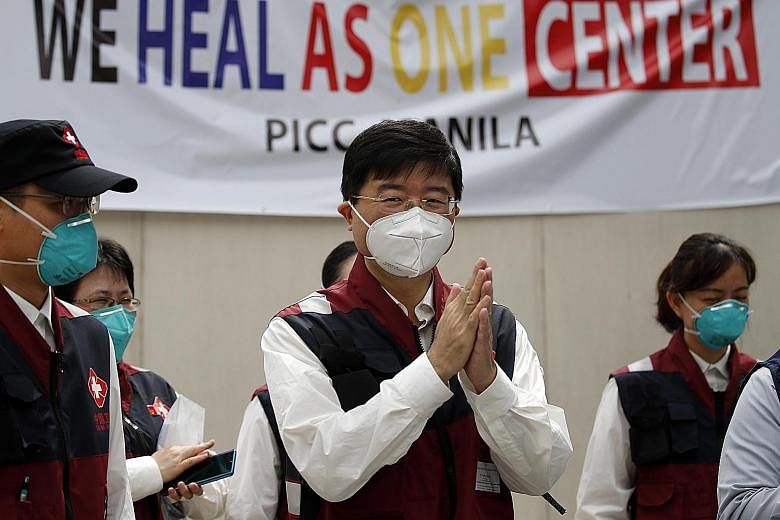A music video that was meant to spotlight China's efforts to help the Philippines check the spread of the coronavirus has drawn an irate response among Filipinos, coming across as a veiled attempt by Beijing to reassert its claims over the whole of the South China Sea.
It was supposed to be a feel-good song, with lyrics written by Chinese Ambassador Huang Xilian that extols cooperation between Manila and Beijing amid the pandemic.
The four-minute video, funded by the Chinese embassy in Manila, has clips of Chinese donations of test kits and protective gear for Filipino health workers.
There are also images of a recent medical mission by a group of Chinese epidemiologists.
There are tributes as well to local nurses, food delivery workers and security personnel.
The video is capped by a clip of President Rodrigo Duterte saying: "I'd like to thank (Chinese) President Xi Jinping. If it comes from China, you won't have a problem (with it)."
But the song's title - Iisang Dagat (One Sea) - has touched a sensitive nerve, as it appears to suggest legitimising China's claims over waters that the Philippines considers part of its territories.
It also has the line: "You and me belong to one sea."
Vietnam, Malaysia, Brunei and Taiwan also have competing claims over the South China Sea.
As of Sunday morning, a day after it was uploaded on the YouTube channel of Chinatown TV, the video had already garnered more than 100,000 dislikes and just 1,000 likes.
"They could have chosen Iisang Mundo (One World) or Iisang Laban (One Fight) or Iisang Adhikain (One Goal). But no. They say Iisang Dagat, which is obviously incompatible with the conflicting claims in the West Philippine Sea," Representative Rufino Biazon, the defence committee chair in Congress, wrote on Twitter.
"What if we say Two China?" he asked.
Filipino officials refer to waters in the South China Sea that the Philippines claims as part of its territories as the "West Philippine Sea".
The comments section on YouTube, meanwhile, filled up with anti-China sentiments.
"China is that friend who pretends to offer a handshake with his right hand but steals from you with his left," wrote YouTube user Joel Tanangonan.
Another user, Angel Pulido, said: "We don't need inspirational songs. We want our islands back."
User Josh Acevedo listed what he saw as abuses by China, including purported harassment by China's navy of Filipino fishermen near disputed islands, and Chinese online gaming firms operating in the Philippines, which had been linked to prostitution dens and human trafficking and not paying their taxes.
There was pushback too.
One user said all those reports portraying China as a bad actor in South-east Asia were "fake news".
Reacting to a comment likening Mr Xi to Winnie the Pooh, netizen Sammy Lau wrote: "Shut up, moron. Enjoy the song and stop your bitterness."
But overall, the reactions from Filipinos were scathing.
The song was performed by Chinese diplomat Xia Wenxin, Chinese actor Yu Bin, Filipino singer Johnvid Bangayan, who has Chinese roots, and Camarines Sur Vice-Governor Imelda Papin.
References to Ms Papin, a popular singer known for her iconic heartbreak songs in the 1970s, trended on Twitter, with many skewering her for singing in the video.
Many also called her a "traitor" for taking part in "Chinese propaganda". Others wondered how much she was paid for it.

